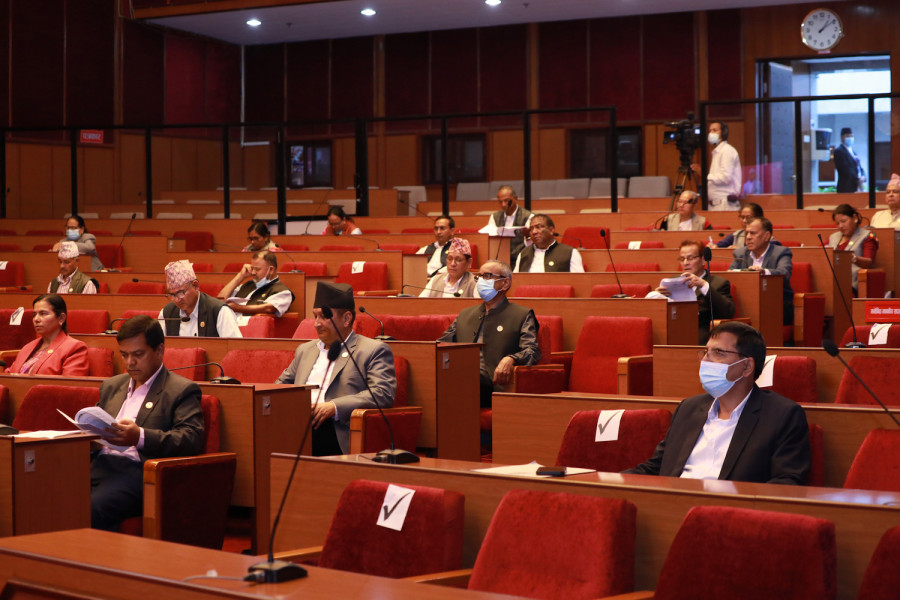National
Amendment bill on Citizenship Act sent to upper house committee
The bill, returned by the President and endorsed by the lower house again, was tabled in the upper house on Sunday.
Post Report
The National Assembly on Sunday forwarded the amendment bill on the Citizenship Act to the Legislative Management Committee for deliberations.
The upper house endorsed the proposal from Minister for Home Affairs Bal Krishna Khand to send the bill that was returned by President Bidya Devi Bhandari for a review to the legislative committee.
“The proposal to send the bill, returned by the President with her comments, to the Legislation Management Committee for deliberations, has been endorsed unanimously,” announced Ganesh Timilsina, chairperson of the upper house.
The amendment bill was returned by Bhandari to the House of Representatives for a review on August 14. It was endorsed by the lower house on August 18 without any changes.
The bill, which was forwarded to the upper house on August 21, was presented on Sunday.
“We wanted the bill to be discussed in the full House without sending it to the legislative committee,” Anita Devkota, Nepali Congress whip, told the Post. “The chairperson, however, said it should be sent to the committee for deliberations.”
The House committee will discuss the bill and send it to the upper house for endorsement which is a time-consuming process.
The bill, according to the government, was introduced primarily to allow citizenship by descent to children of those parents who acquired the citizenship by birth and clear legal hurdles to allow the mother to pass citizenship to children in her name.
Article 11 (3) of the constitution says a child of a citizen who has acquired the citizenship of Nepal by birth before the commencement of the constitution, shall acquire the citizenship of Nepal by descent.
The existing Act allows everyone born within Nepal’s territory before April 12, 1990 to acquire citizenship by birth.
However, their children haven’t got citizenship by descent in the absence of a law as the constitution said the provision to grant them citizenship would be guided by a federal law. Some 190,000 persons have acquired citizenship by birth so far.
Similarly, the bill also paves the way for a child born in Nepal to a Nepali woman and whose father is unidentified to get citizenship by descent.
However, the applicant’s mother must make a self-declaration that the father “cannot be identified.”
She will face legal action if it is found that the claim that the father “cannot be identified” turns out to be wrong.
For the first time, the bill also paves the way for non-resident Nepalis to acquire citizenship. However, they will not be eligible to enjoy political and administrative rights. The provision will be applicable only to those who reside outside the South Asian region.




 8.43°C Kathmandu
8.43°C Kathmandu













